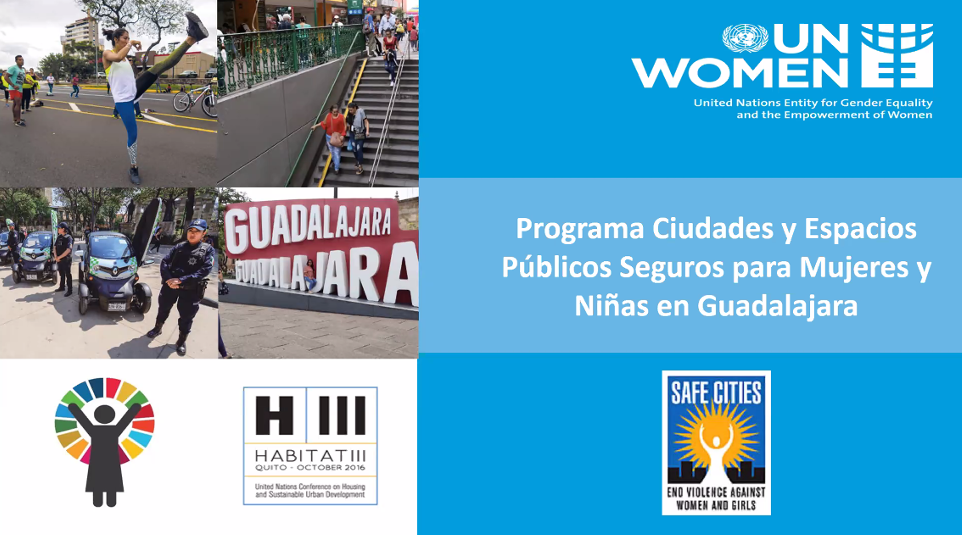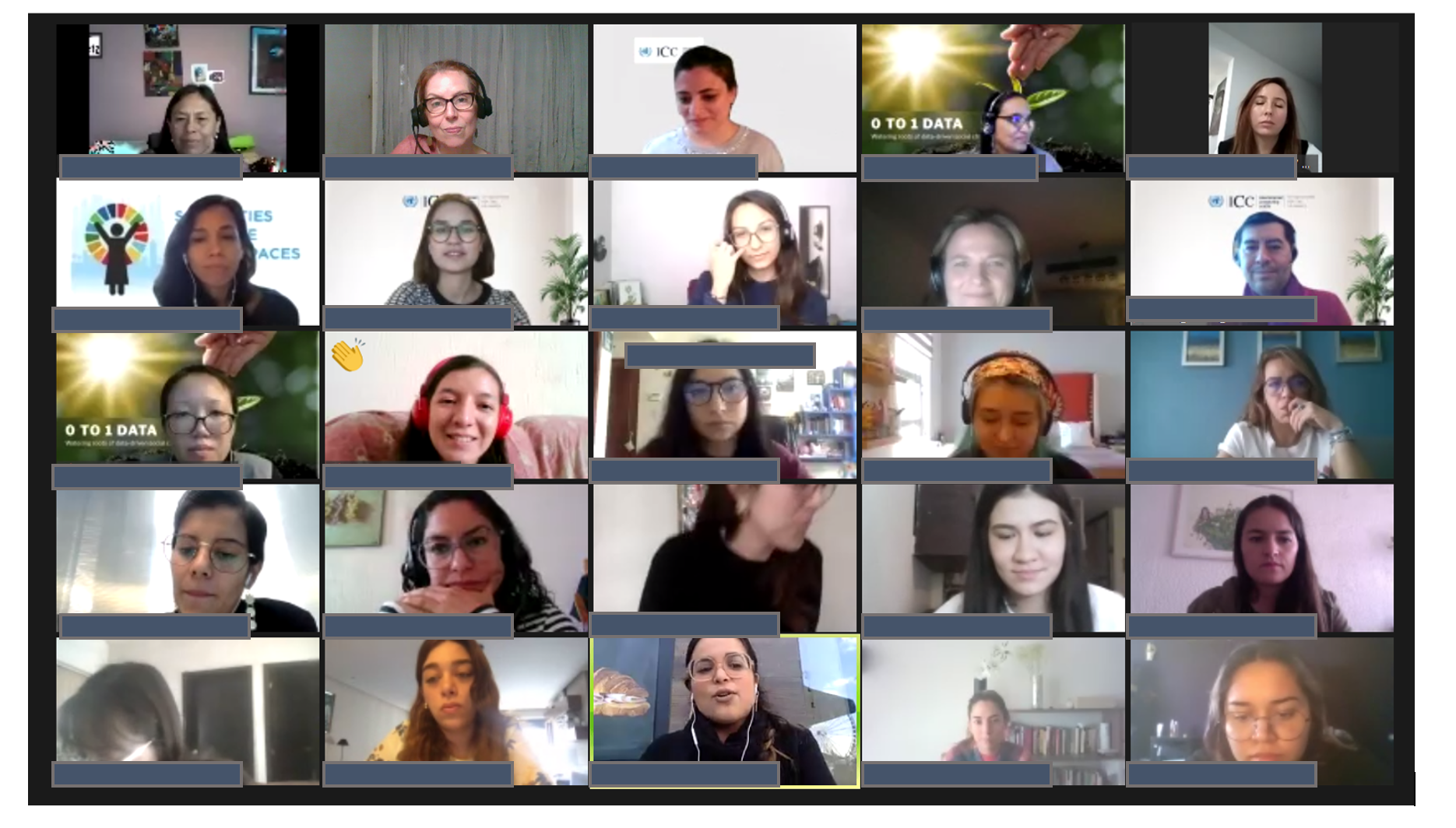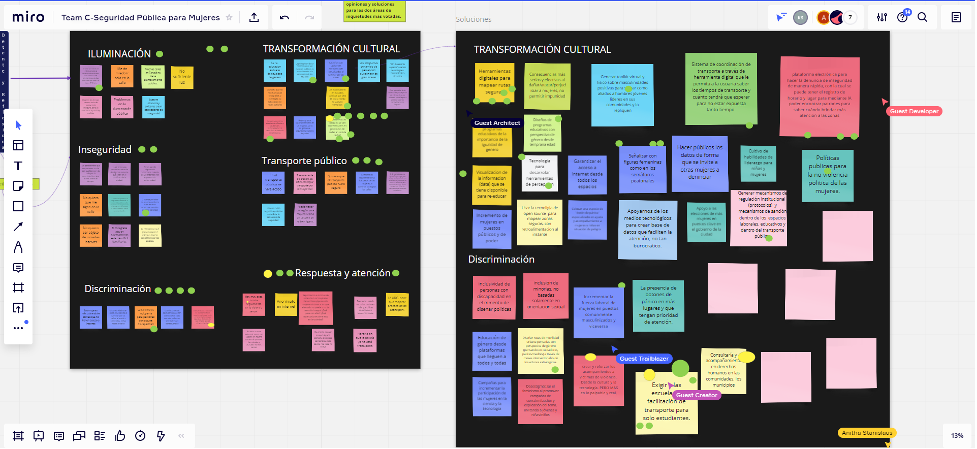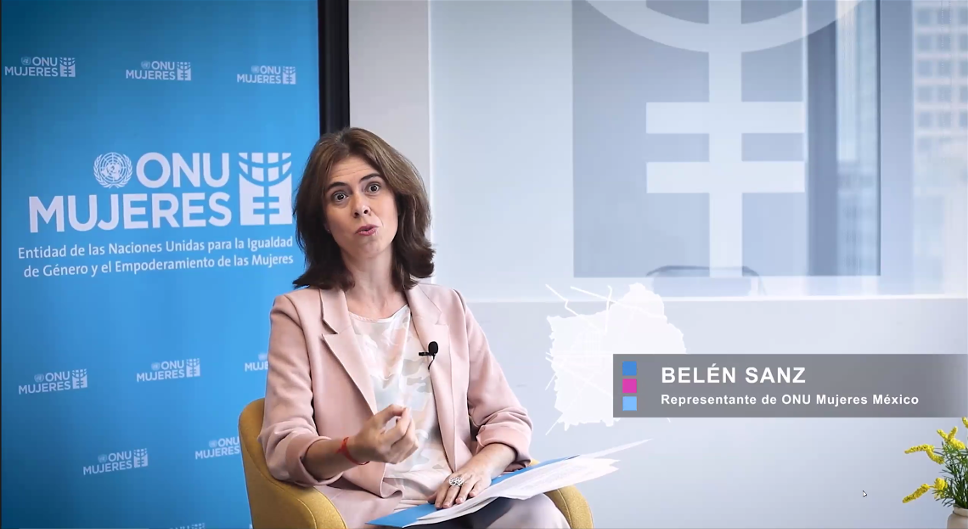How digital technologies can make a difference
UN Women and UNICC co-sponsored a Thinkathon 30 November on how digital technologies could make the metropolitan area of the city of Guadalajara, in Jalisco, Mexico, safe for women and girls.
UNICC partnered with UN Women Mexico Safe Cities Initiative, to amplify women’s voices and need for access to safe and inclusive public spaces during the pandemic and beyond. Local partners included Girl Up and the Second Chance Education Programme.
There is an urgent need to rethink cities with a gender lens to respond to the reality of COVID-19, and to recover better by building safe and inclusive cities. Innovation and data can help us to do this while we continue to amplify women’s voices and participation in the process.
Lizzette Soria, Policy Specialist, Ending Violence Against Women, UN Women
Girls, young women, civil society organizations, academic organizations, private sector individuals, local government as well as the Counsellor for Gender Affairs at the Permanent Mission of Mexico to the United Nations took part in the Thinkathon.
The event was co-hosted by Anusha Dandapani, Chief of Data and Analytics at UNICC and Lizzette Soria, Policy Specialist, Ending Violence Against Women, UN Women.
On hand were experts Andrea Cházaro, Coordinator of the Safe Cities Programme in Mexico and Barbara ‘Bita’ Aranda, Girl Up Regional Representative for Latin America and the Caribbean. Fifty-five women and two men attended, with 32 participants sharing challenges, moving personal stories and potential solutions.


Anusha Dandapandi, David Damian Sandoval, Elena Tejadillos, Maria Rubal Thomsen and Kirsten Sandberg joined from UNICC.
A Thinkathon is a method of collaborative problem-solving and apt for virtual collaboration in these times. The Thinkathon used the online collaboration tool Miro, inspired by the great Spanish artist Joan Miró i Ferrà. The tool was not available in Spanish, and so UN Women and UNICC created a training video, translating the interface and user instructions into Spanish, to prepare participants in advance of the event. Girl Up was a key partner here as well: the process was not only about maximum engagement of the community but meaningful capacity building on the use of these tools and techniques.
Generating data to inform policies and programmes – in this case, for achieving the Sustainable Development Goals for good health and well-being (SDG 3), gender equality (SDG 5), sustainable cities and communities (SDG 11) and peace, justice and strong institutions (SDG 16) – can sometimes be a challenge for organizations. UNICC is filling that gap with data and analytics tools and services that are easy for non-techies to use in their work.
Anusha Dandapani, Chief, Data and Analytics, UNICC

The Thinkathon involved experienced facilitators – all young women trained in design thinking – to guide the group’s ideation. The leaders assigned participants to three break-out groups, each of which generated sets of problems and solutions.
Participants living in Guadalajara identified poor lighting of pathways and public places as a key concern, as well as the lack of safe and lighted spaces for women on public transportation. Several participants described their experiences, their fear of commuting at night and what might happen to them in the dark.
The fear is quite understandable. In a 2018 UN Women study of Guadalajara, 81% of female respondents acknowledged suffering from some form of sexual harassment or violence while moving through the historic centre of the city.
The groups suggested several viable digital solutions, among them an app for mapping the safest routes in Guadalajara, a digital platform for reporting issues requiring rapid response, and a one-touch access to an emergency helpline with video surveillance.

Another common theme was culture – how to transform the social and cultural norms that may lead to verbal or visual abuse, unwanted advances or worse, so that women and girls can enjoy public spaces. Achieving those goals will take time and require re-education to surface and address deep-seated biases and behaviors.
Proposed solutions were creative:
- At crosswalks, signal with female figures in pedestrian traffic lights and gender-responsive way-finding tools.
- Engage women and girls in the development of open-source solutions and continually strengthen the quality of the digital services available to them.
- Make public data accessible in a way that invites other women to report instances of harassment and violence, and continually visualize the data as a means of educating and re-educating the city’s citizens.
The co-sponsors of the event will move these ideas forward, potentially driving a technology hackathon for prototyping proposed digital solutions. The overall goals are to inform investment in public safety and infrastructure with a gender perspective at the local level.
Participants said that the Thinkathon was empowering and had a positive effect on those who attended. Noted one participant, “Thank you very much for the invitation, very interesting. I have many notes to continue working on digital transformation projects in the State of Jalisco.”
Another added, “Thank you, UN Women Mexico, for your extraordinary work in organizing this event with UNICC and Girl Up.”
A representative of UN Women Mexico shared with Anusha at the end, “Thanks so much for such an amazing event! We are very pleased with the results.”

